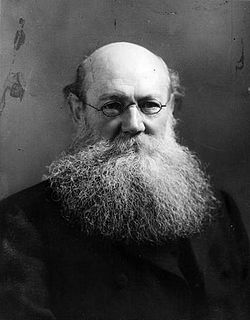- Original title
- The Edukators (Die fetten jahre sind vorbei)
- Year
- 2004
- Duration
- 127 minutes.
- Country
- Germany
- Director
- Hans Weingartner
- Script
- Katharina Held, Hans Weingartner
- Music
- Andreas Wodraschke
- Photography
- Matthias Schellenberg, Daniela Knapp
- Cast
- Julia Jentsch, Daniel Brühl, Stipe Erceg, Burghart Klauβner, Petra Zieser, Knut Berger, Hanns Zischler, Oliver Bröcker, Peer Martiny
- Producer
- Y3 Film / Coop 99
Genre Drama
- Awards
SYNOPSIS
Jan and
Peter are two friends who fight against political injustices. But they do it in
a very peculiar way: they enter in the houses of the rich people, and modify
furniture positioning. They do not stole, and they do not do violent actions.
When they left from the houses, they signed a note with the name “The
Edukators”. Their objective is to scare homeowners and let them see that all
their luxuries are unnecessary.
Jule, Peter’s
girlfriend, does not know that their friends are the “edukators”. Years ago,
she had a car accident with a business man called Hardenberg. She has to pay
him a lot of money due to the damage she caused on the car. So Jule is in debt and
she has to left her flat and she goes to Peter’s apartment.
Peter
travels to Barcelona for a few days, ad Jule begins to meet Jan. Both go to
Hardenberg’s house, and they misplace the furniture. The next day they have to
return because Jule has left her mobile phone. But Hardenberg arrives home and
discovers the two friends. They decide to kidnap and take him to a house in the
mountain.
They live
together during some weeks, and they begin to meet each other better. They
realize that Hardenberg is a good man that, therefore he has a lot of money, he
is not happy.
The guys
decide to take him home. The rich man promises not to tell the police about the
kidnapping, and promises Jule to forgive the debt.
CHARACTERS
- JAN: he's very radical regarding to refuse capitalist system. He fights against political injustices. He lives wth Peter, and he will fall in lve with Jule, his friend's girlfriend.
- PETER: he wants to generate changes in the minds of people, but he is not so extremist.
- JULE: Peter's girlfriend. Due to an accident she had years ago, she owes a lot of money to Hardenberg. She has to left her flat, because she is ruined and she can't pay the rent, and she goes to her boyfriend's apartment. Here, she starts to meet Jan, who she will end up falling in love with.
It's important to emphasize how her mentality develops: first of all she is a girl whith an mortgage because of a traffic accident, and later she begins to reconsider some questions, like if it is fair to mortgage her life for a man that won't value it because he has a fortune.
It's important to emphasize how her mentality develops: first of all she is a girl whith an mortgage because of a traffic accident, and later she begins to reconsider some questions, like if it is fair to mortgage her life for a man that won't value it because he has a fortune.
- HARDENBERG: business
and rich man, he does not feel fulfilled with his money and his luxuries. When
he goes to the mountain with the guys he starts to enjoy simple things in life,
like cooking, etc. When he spends time with them, he realizes that all he has
are unnecessary things that do not make him feel happy. Moreover, the
experience with the guys reminds him of the ideals for which he fought when he
was younger and which he has lost due to getting older.
The film sets
out the issue of the struggle for a new and better world through social
movements. There is a reflection on what has to be the right way to build this
new world. It considerers if it is necessary to end or not with the rich,
whether or not it is lawful violence to achieve that other world, and also
appears the question of what persists in the time of our dreams or ideals.
The young
protagonists pursue a set of ideals that oppose to the adult world, but those
ideals do not make them forget they also have some principles and they have to
act following them. Wanting to educate the others reflects the desire to change
others according to their way of seeing the world. Throughout the film are
showed the discrepancies between Jan and Peter in relation to the media they
have to use to get their purpose. Jule also shares the ideals of his friends,
and she is who is suffering more directly the injustice of the system.
Hardenberg’s
kidnapping offers the possibility to know another point of view. In a certain way,
he sees himself reflected in the idealism of youth. On May 68 he was like them,
but the years have made him forget all his ideals of freedom. Initially he
justifies himself by this, but then he shames.
The film
also is about other issues: social and personal revolution, the struggle for
justice, consumerism, friendship, love, the importance of being against having
...




_printed_1838.jpg/326px-New_Harmony_by_F._Bate_(View_of_a_Community,_as_proposed_by_Robert_Owen)_printed_1838.jpg)



